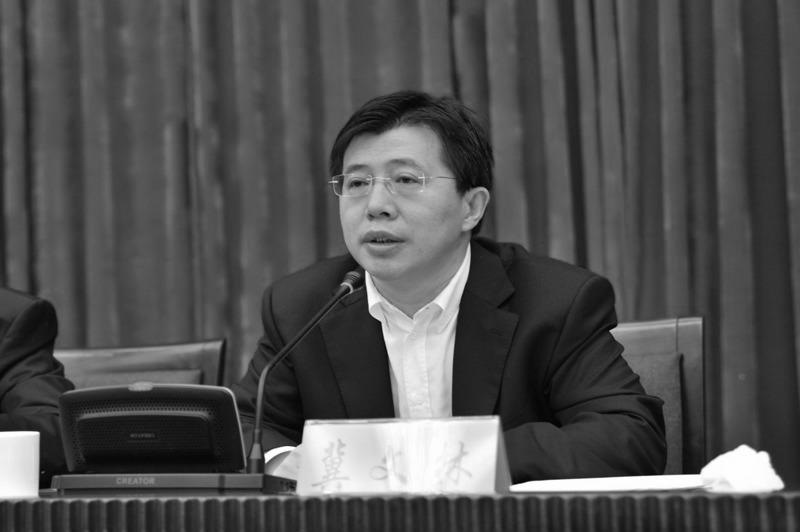The aide of a purged Chinese security czar has recently been convicted and handed a lengthy jail term after a two-year investigation, another instance of final punishment for a member of a faction that has obstructed Chinese leader Xi Jinping from exercising full authority over the Chinese Communist Party.
Ji Wenlin, 50, was found guilty by Tianjin No. 1 Intermediate People’s Court on March 30 for taking kickbacks of 204.6 million yuan (about $31.7 million) for helping business groups and individuals obtain the national certifications necessary for doing business, as well as plum state funding, according to an announcement by the Central Commission for Discipline Inspection, the Chinese Communist Party’s internal disciplinary agency. He was sentenced to 12 years in prison and fined $1 million yuan (about $155,000).
Ji had carried out his illicit activities between 2000 to 2013 while he was the vice governor of the island province of Hainan and the mayor of its capital, Haikou. More prominently, Ji’s transgressions took place when he was the top aide to Zhou Yongkang, the former security czar.
Between 1998 to 2008, Ji Wenli was the secretary, or “mishu,” for Zhou Yongkang, and had followed the latter as he transitioned from state oil magnate to various important government posts. Traditionally, the mishu of elite Party cadres are fast-tracked to top positions, and Ji was no exception—from 2005 to the end of 2008, Ji held important portfolios like deputy director of the Public Security Bureau’s general office, and deputy director and secretary of the central stability maintenance work-leading small group.
The so-called stability maintenance apparatus was responsible for coordinating the suppression of Chinese dissidents and persecuted groups like house Christians, Uyghur Muslims, Tibetans, and practitioners of Falun Gong before and during the 2008 Summer Olympic Games in Beijing.
Under Zhou Yongkang, the state security apparatus was handed a budget even greater than that granted to the People’s Liberation Army, and was regarded by many political observers as a power almost unto itself in the Chinese regime. Zhou also saw that former Chinese leader Jiang Zemin’s campaign to suppress Falun Gong—a traditional Chinese self-cultivation practice whose adherents do slow exercises and live by the principles of truthfulness, compassion, and tolerance—was expanded and perpetuated.
However, Zhou’s grip on power came undone in 2012, after he and co-conspirator Bo Xilai, the former Chongqing chief, were found to have attempted to engineer something like a putsch that would have displaced the incoming Chinese leader Xi Jinping. This conspiracy was unmasked after Wang Lijun, a former associate of Bo Xilai, attempted to defect at the United States Consulate in Chengdu.
When Xi took over the mantle of Chinese leader, he immediately launched an anti-corruption campaign, and began targeting many of Jiang Zemin’s allies and political clients. These included Zhou Yongkang. At least six of Zhou’s former secretaries, including former President of the Sichuan Federation of Literary and Art Circles Guo Yongxiang; Li Hualin, former vice general manager at PetroChina, China’s largest state-run oil company; Li Chongxi, the chairman of Sichuan Province’s Chinese People’s Political Consultative Conference; and Ji Wenlin, were investigated for corruption and purged. Zhou himself was arrested in 2014 and handed a life sentence in June 2015.
The punishment of Ji indicates that the elimination of Xi Jinping’s rivals is ongoing. With increasing tension inside the Party, including open challenges to Xi’s authority almost certainly connected with this rival faction, the purge may also begin taking still more powerful scalps.




